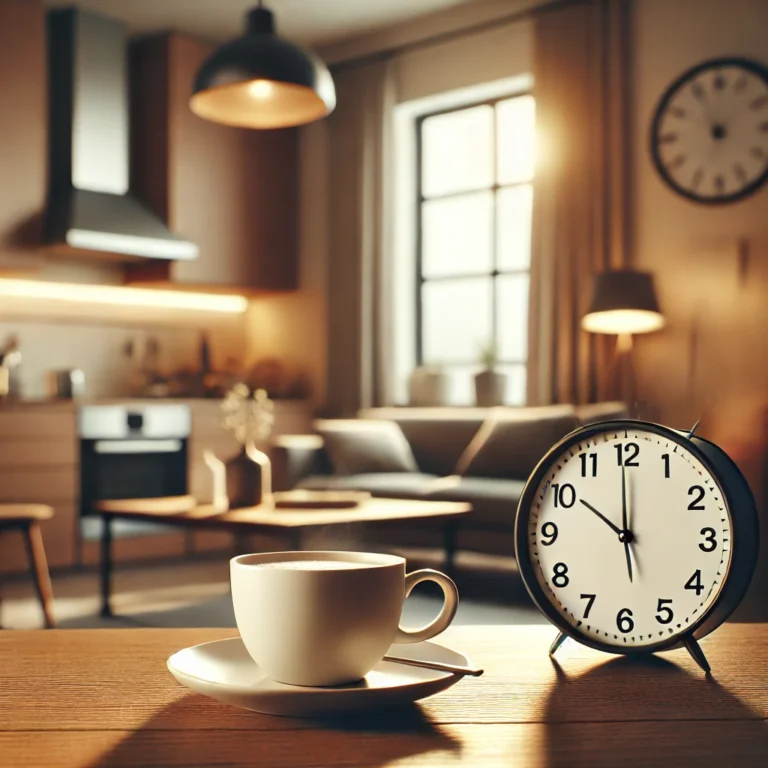For many of us, coffee is an essential part of our daily routine. It kick-starts our mornings, fuels our productivity, and sometimes provides that much-needed pick-me-up in the afternoon. However, as much as we love coffee, its timing can significantly impact our sleep quality and overall well-being. So, when should you have your last cup of coffee to avoid disrupting your sleep?
The Science Behind Caffeine and Sleep
Caffeine, the active ingredient in coffee, is a stimulant that works by blocking adenosine receptors in the brain. Adenosine is a chemical that promotes sleepiness, so when caffeine blocks it, you feel more alert and awake. However, caffeine’s stimulating effects can last much longer than you might think.
On average, caffeine has a half-life of about 5 to 6 hours, meaning that half of the caffeine you consume is still in your system five to six hours after you drink it. For some people, the effects can last even longer, depending on factors like age, metabolism, and overall health. This lingering caffeine can interfere with your ability to fall asleep and reduce the quality of your sleep.
When to Have Your Last Coffee
To avoid sleep disturbances, most experts recommend having your last cup of coffee at least six to eight hours before bedtime. For example, if you typically go to bed around 10 p.m., it’s best to finish your last coffee by 2 to 4 p.m. This gives your body enough time to metabolize the caffeine and reduce its levels in your system before you try to sleep.
However, if you’re particularly sensitive to caffeine, you may need to stop drinking coffee even earlier—possibly by late morning or early afternoon. It’s also worth noting that caffeine isn’t only found in coffee; it’s present in tea, soda, chocolate, and certain medications, so be mindful of these sources as well.
Alternatives to Coffee Later in the Day
If you’re looking for an energy boost later in the day but want to avoid caffeine, there are plenty of alternatives:
- Herbal Teas: Herbal teas like peppermint or chamomile can provide a calming effect without the caffeine. They’re great options for winding down in the evening.
- Decaf Coffee: If you love the taste of coffee but want to avoid the caffeine, decaf coffee can be a good option. Just be aware that decaf still contains a small amount of caffeine.
- Water: Staying hydrated is key to maintaining energy levels throughout the day. Often, feelings of fatigue can be due to dehydration, so drinking water can help keep you alert.
- Light Exercise: A quick walk or some light stretching can boost your energy levels without the need for caffeine. Physical activity increases blood flow and oxygen to your brain, helping you feel more awake.
The Benefits of Limiting Late-Day Caffeine
Reducing your caffeine intake in the afternoon and evening can lead to several benefits:
- Improved Sleep Quality: With less caffeine in your system, you’re more likely to fall asleep quickly and enjoy deeper, more restorative sleep.
- Better Energy Levels: Ironically, cutting back on late-day caffeine can actually help you feel more refreshed and energetic the next day, as you’ll have slept better.
- Reduced Anxiety: Caffeine can increase feelings of anxiety, so limiting your intake can help you feel calmer and more relaxed, especially in the evening.
Timing your coffee consumption wisely can make a significant difference in your sleep quality and overall well-being. To ensure a good night’s sleep, try to have your last cup of coffee at least six to eight hours before bedtime. By making this small adjustment, you can still enjoy your favorite beverage without sacrificing the rest you need to stay healthy and energized.

